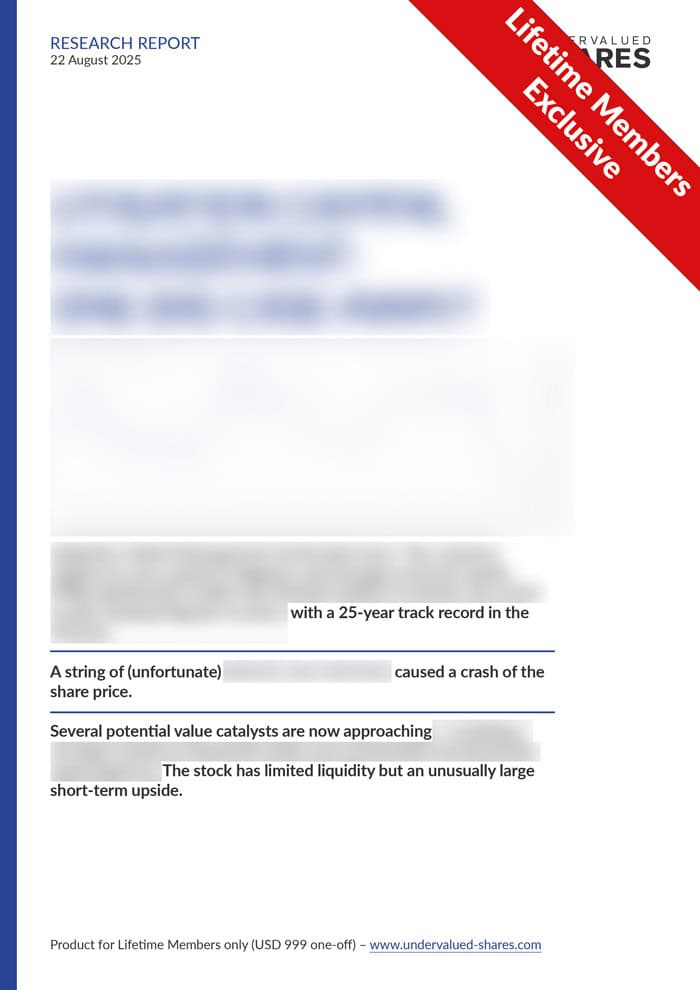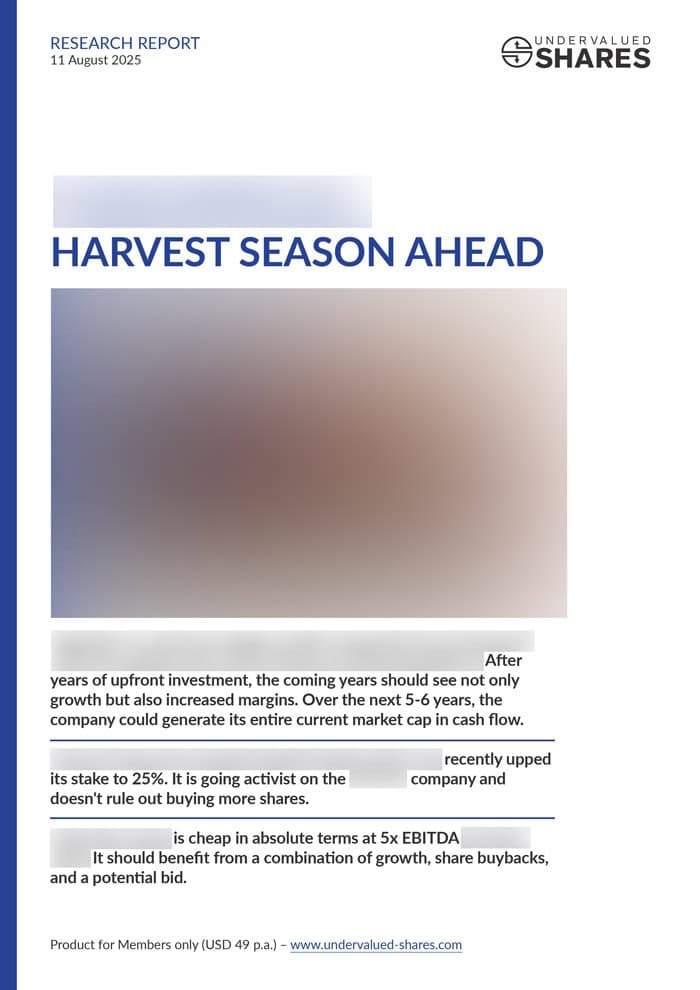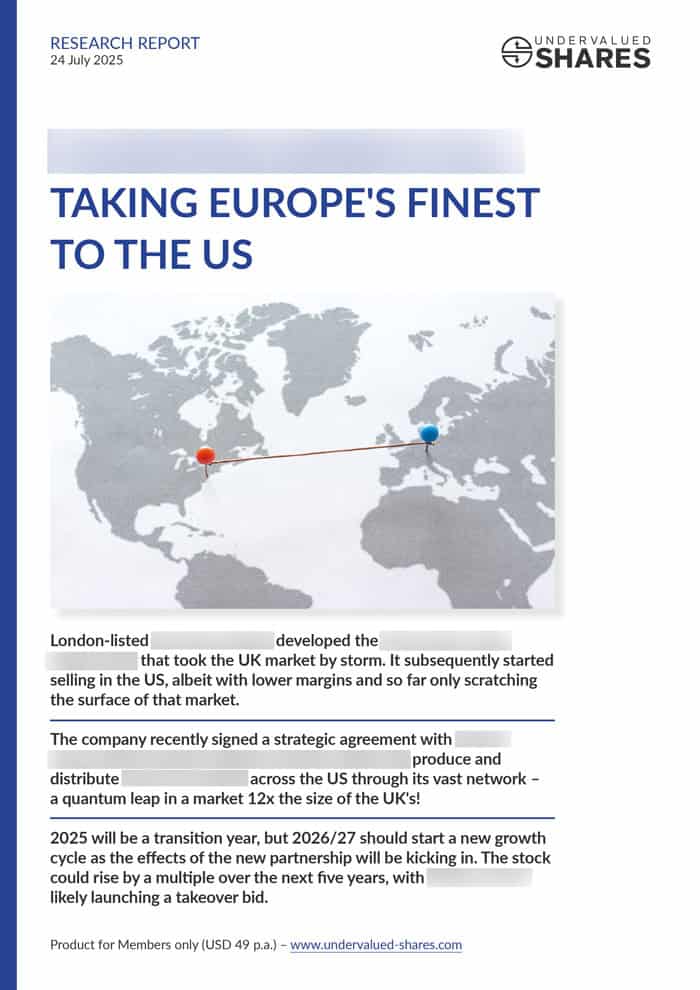Gold stocks remain undervalued, with considerable upside potential. I picked the brain of Dominic Frisby, who has just released a new book on gold, to get his take.
YOUR INVESTMENT STRATEGY
Can you manage your own equity investments, even if you have little or no prior experience?
Yes, you can.
Building a diversified portfolio of investments does not need to be complicated or overly time-consuming. Quite the opposite, it can be fun and intellectually rewarding!
This website gives you the information and ideas to help you:
- Build a portfolio of investments in world-class companies.
- Focus on investments that you can easily make sense of.
- Buy investments that you can probably hold for two, three or five years (or even longer).
Annual Members of my website receive up to 10 investment ideas per year, sourced from stocks with liquid trading (> USD 1bn market cap).
Lifetime Members receive at least an extra 4 opportunities sourced from small- and mid-caps (USD 20m – USD 999m market cap).
The ideal portfolio
Everyone has their own priorities and preferences (as well as limitations) for building a portfolio. If you need some advice to get you started, here is my advice for an effective portfolio structure.
1. Focus on the ideas you are deeply convinced of
Don't spread your portfolio across 20, 50 or 100 different ideas. Back the best ones you can find.
If you invest in companies from different industries and with operations around the globe, you have diversification built in automatically.
Also, it's proven that the best investors have a relatively small number of ideas that they back. The world's most successful investors tend to massively outperform the market on the back of their top ideas and based on relatively lean portfolios.
These investors then monitor their stocks closely, and they are open to making changes if or when required. But they don't hectically switch positions every other week. Instead, they wait for their Big Investment Ideas to play out.
In my view, owning a portfolio of 15-20 different companies is the right decision for most private investors who want to build wealth.
2. Choose a simple but effective trading strategy
When you are convinced of an investment idea, allocate a sum from your overall portfolio and invest a percentage of that amount on day one. I recommend to make it one third, but it could also be one fourth or one fifth, depending on your personal preferences.
If the price of the investment falls 10% or 20% and you haven't changed your original assessment of this investment, use the lower price to invest the next tranche of your money.
Stick to this strategy, which is called "cost averaging" (or, if you prefer a more visual description, "Don't shoot all your bullets at one time").
You have to be very disciplined:
- If, in the short-term, a stock price moves against you, then doing nothing is not an option. Once the threshold is met, you HAVE to buy the next tranche.
- The only other option for you should be to sell your entire position if you have changed your overall assessment of the investment.
- Keep your strategy as simple as that, because by keeping it simple you can actually stick to it.
3. Don't sell your winners too early
Even the best investors in the world only make money on about half of their trades. What has made them successful, wealthy investors was their ability to let their winners run.
Which ties into the previous point. If you get a short-term market movement wrong (which we all do all too often), invest more money at a lower price. Then wait for your idea to eventually work out but with you owning an even larger, cheaper stake in the company!
Taking early, quick profits is very tempting. Statistics show that the vast majority of investors takes profits too early because they feel good about it and enjoy the adrenalin rush of "having made money". If you fall into the same trap, you'll learn the hard way that those small profits never compensate for the inevitable losses suffered from other investments. Plus, they will prevent you from ever winning big over the long term.
Would you like to read more about this?
The above investment strategy is beautifully described in "The Art of Execution – How the world's best investors get it wrong and still make millions in the markets" by Lee Freemen-Shor.
I can't recommend this book highly enough. It describes this strategy with much more statistical evidence and practical information than I can do in this short overview.






